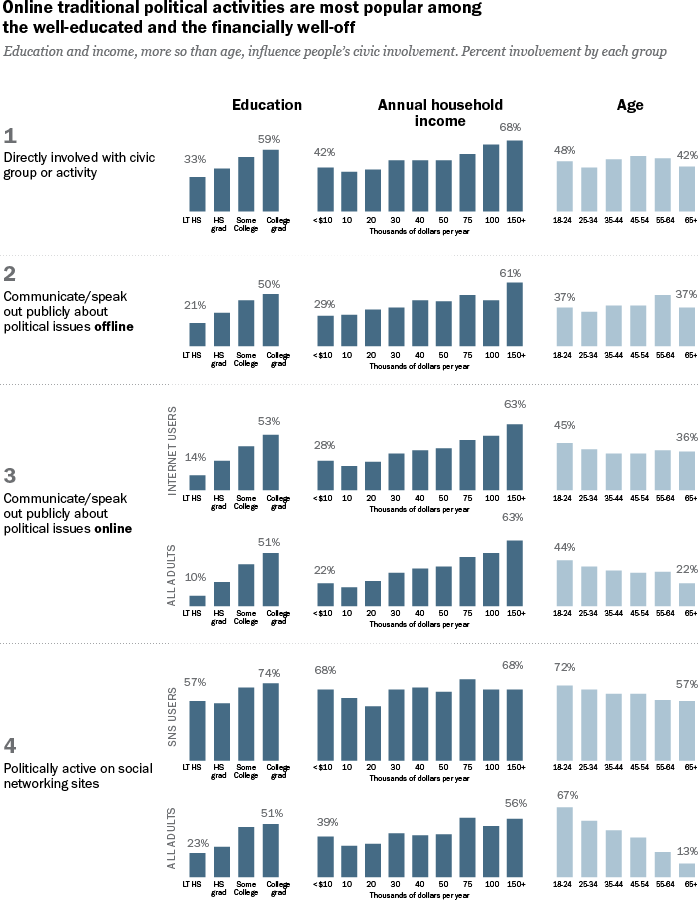How Digital Media Is Revolutionizing Citizen Engagement
Citizen engagement with national and local government has been transformed by the digital age. Americans are increasingly utilizing mobile technology and social media to increase participation and interaction.
A survey conducted by Pew Internet tested the temperature of online citizen engagement. Among the fascinating insights, here are a few key questions the survey answered.
Who is behind the surge in online engagement?
The survey found that 67 percent of 18–24 year olds participated in politics via social media. Younger generations have a voracious desire for participatory tools such as social media. The millennial generation is demanding and strongly opinionated.
Exciting subject matter, such as politics, can be the catalyst for this generation to become part of a movement. As evidenced by the 2008 presidential election, the confluence of social media and young people has the power to profoundly impact the digital age.
Increased mobility has positively affected younger generations’ participation in society. Many young people have access to a mobile device, and they flock to social media apps that provide hot topics at their fingertips.
Which platforms are driving citizen engagement?
As StateTech reported in April, civic engagement via social media has been on the rise.
In 2013, local government will connect to citizens via mobile services and social media, accelerating a new type of citizen–government relationship. Citizens themselves are driving much of this shift because their adoption of mobile devices changes the ways government information and services are accessed.
Effective government outreach has a lot to do with understanding the target audience. The survey found that 60 percent of adults use social media platforms like Facebook and Twitter. These platforms are an important component of a successful government communication strategy.
The proliferation of social media has a lot to do with ease of access. These platforms can be accessed anywhere at anytime. Liking something on Facebook takes little to no effort, yet it can be a powerful expression of loyalty and sentiment.
Social media documents issues for the world to see. Pictures and video now accompany citizen engagement. Social media has almost no filter. Once a statement or photo is out there, deleting it can be next to impossible.
Will social networking make governments more transparent?
According to the survey, 39 percent of adults participated in national or local government via social media.
Interaction between citizens and government has traditionally taken place in a town hall meeting or a snail-mail letter to a government representative. With social media, citizens can instantly interact with the government.
The mobile component of social media will continue to be important in this interaction. For example, if a citizen witnesses a community issue, she can on-the-spot tweet the local government to document her experience or express an opinion.
It is increasingly considered taboo for government agencies and representatives not to have a social media presence. There is a push to appear transparent by allowing citizens access across a variety of platforms.
Here is a look at some of the other findings. Check out the entire survey here.









